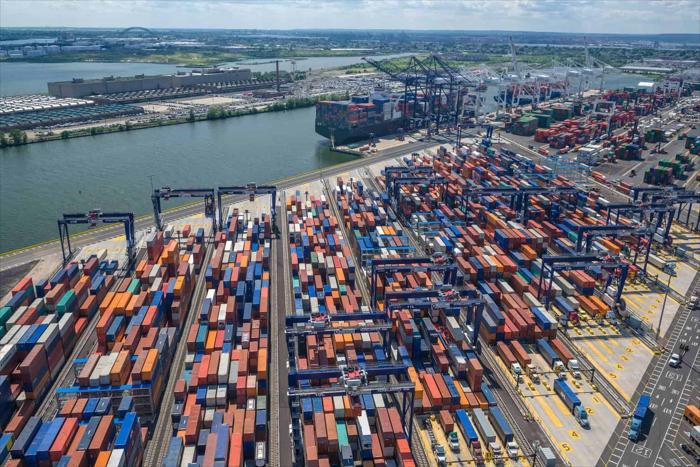Carriers' need for better yield puts more pressure on NVOs
Carriers have been managing NVO [non-vessel operator] compliance “much more strictly” in the post-Covid market, forcing them “to revamp their whole sales structures”.
In the past few years’ ocean shipping contracting, carriers have increasingly been pushing “an almost pervasive use of weekly string or port by port pair allocation plans” to monitor NVO compliance, according to Bob Fredman, principal at SF Global Insights.
Mr Fredman explained to delegates at TPM25 by S&P Global that a carrier today says to a forwarder or NVO – ’you’re ready to sign the contract? Let’s agree on the allocation plan’.
He said: “It is no longer ‘5,000 feu, great, where do we sign, we’ll figure out the allocation plan later’. It’s like ‘five this week on this lane, and six this week on that lane’. That has allowed the carrier to manage NVO compliance much more strictly.”
Mr Fredman added that “if a couple of weeks in a row, you miss your five, it gives the carrier the opportunity to say ‘well, sorry, you only gave me two, the market’s strong, I’m only giving you [space for] two”.
He said this was one way carriers had been able to avoid holding space for long-term contracts, allowing them to improve yields in a more profitable spot market.
Indeed, Stephanie Loomis, head of ocean freight Americas at Rhenus Logistics, added that the biggest change in behaviour post-Covid was that carriers were “now really sort of forcing [NVOs] to give them a certain percentage of cargo on the spot market”.
She explained: “The biggest thing you argue about during your contract negotiations as an NVO, is how much of your allocation is going to be based on spot rates and how much of it is going to be based on more of a fixed rate.
“And as spot rates have remained so high since the pandemic, [carriers] are not disregarding that percentage that you have, but they’re definitely keeping a closer eye on it.
“If you don’t feed them a certain amount of spot business, your NAC [named account] business goes away; they just won’t give it to you. They either won’t fulfil that allocation or it’s a constant communication with them.”
Ms Loomis also told delegates carriers had become less interested in smaller volumes, which had “forced NVOs to revamp their whole sales structures”.
“When I first got in the business, it was not uncommon to see an importer with a few hundred, maybe even a thousand, teu capture a named account rate that was very close to what a large BCO would be paying, if they knew the market well enough.”
“Those days are gone, absolutely gone,” said Ms Loomis.

